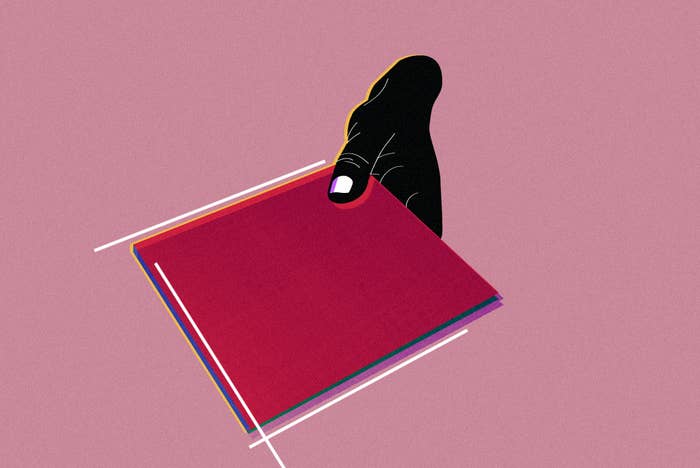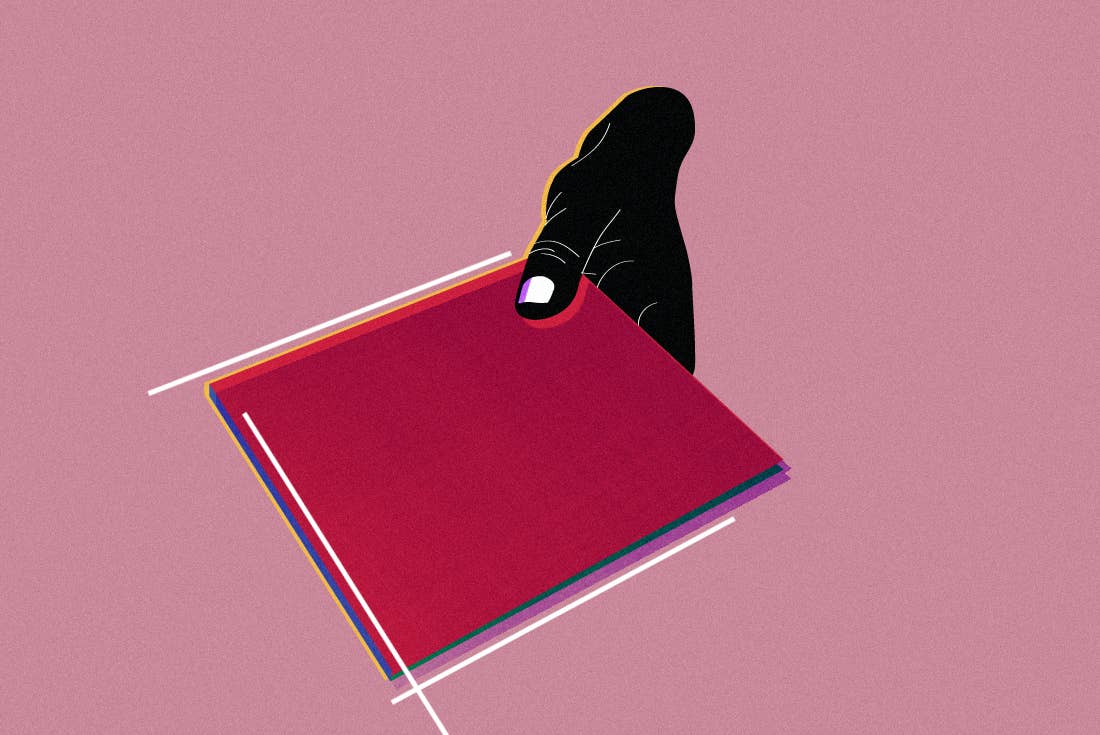
“How can they call themselves bosses
When they got so many bosses
You gotta see what your boss say
I get it straight out the faucet”
Chance the Rapper - "Mixtape"
These four bars find Chance The Rapper, who is well on his way to becoming the first artist to ever have a Grammy nomination for a mixtape, brazenly take aim at those of his contemporaries who pride themselves on being “bosses.” But they don't seem to have the control of Chance, who enjoys the freedom that comes from being independent.
Chance’s career thus far has been defined by independence. He’s managed to stay one step ahead of an industry that is often highly exploitative of artists. When Chance proclaims that he gets it “straight out the faucet,” he could be talking numbers; he doesn't have to deal with a major label when it comes to touring, merch, and endorsements. Chance’s story is challenging many preconceived notions about the industry as a whole, and it all starts with what the Chicago rapper calls mixtapes.
Over the years, the music industry has made painstaking efforts to avoid appearing out of touch. They've incorporated streaming data into reported record sales and Billboard charts, adjusted the traditional release strategies, and looked beyond print media and radio plays for promotion. Back in June, the National Academy of Recording Arts and Sciences’ decided that music only available via streaming was eligible for Grammy nominations. This is arguably the largest platform the mixtape has ever been granted. Consequently, it’s time to consider how the term “mixtape” has changed over the years, and what its future holds.
The prevalence of the mixtape in hip-hop is almost as old as the music itself. In the late '70s and early ‘80s, hip-hop pioneers like Afrika Bambaataa, Grandmaster Flash, and DJ Kool would have their performances recorded, distributed, and sold to individual listeners via cassettes. This market took shape during hip-hop’s formative years, a time when the music existed almost only in a live setting. These early mixtapes were a burgeoning MC’s main way of having their music circulated.
These tapes would then be re-dubbed, duplicated, and passed around, and the best releases began to gain traction. Although the tape’s quality would be reduced the more it was dubbed, it was a signifier of mass popularity and appreciation within hip-hop circles. The mixtape was the first mass vehicle for hip-hop music, long before platforms like BET and rap-based radio stations surfaced.
By the ‘90s, the mixtape was undergoing its first metamorphosis. In addition to its physical form shifting from cassettes to CDs, the rise of DJs such as Funkmaster Flex and DJ Clue marked the moment when the focus of mixtape moved to exclusive and unheard material from the era’s reigning heavyweights like Notorious B.I.G. and Mobb Deep. It also became a platform for new emerging talent like Jay Z and The Lox.
The culture of obtaining exclusives was such a prerequisite for up-and-coming DJs that they were prepared to take potentially perilous risks. “Back in the day it was a rite of passage to have the unreleased exclusives and branding them with your own custom drops,” DJ Whoo Kid explains. “I remember going into the label offices and getting DAT's from people like Russell Simmons, and there would be music on there that wasn't supposed to be, or I would steal them out of the offices and leak the records. One time that almost got me killed when I leaked Jay Z's artist Sauce Money's diss to Big Pun and Pun kidnapped me up in Spanish Harlem.”
One time [a mixtape exclusive] almost got me killed when I leaked Jay Z's artist Sauce Money's diss to Big Pun and Pun kidnapped me up in Spanish Harlem. - DJ Whoo Kid
Arising concurrently was the movement of the blend tape, innovated by Ron G. As the name indicated, a DJ would blend the a cappella of R&B vocalists with hard-edged hip-hop beats to create a new sound. Ron G’s method was later picked up by Diddy and the Bad Boy label. It paved the way for the remix and “hip-hop soul,” the R&B subgenre coined by Diddy and mastered by giants of the time like Mary J. Blige and Jodeci.
During this era, mixtapes had always been monetized commodities with a high degree of exclusivity—if you were able to purchase or redub these tapes, you were in the minority. It meant that you were paying attention to what was still a subversive culture. The arrival of Flex and Clue signaled the mixtape form transitioning from a covert trade to a custom that major record labels could profit from.
During the mid to late ‘90s, labels commercially released albums classified as mixtapes, such as the first of Clue’s The Professional series, which became a platinum record. Flex’s The Mixtape spawned four sequels. These releases effectively broke the mixtape form into the mainstream.
Critics argued DJs like Clue and Flex weren’t really respecting the craft of "real" DJs. They were just lining up tracks supplied by their label bosses while shouting signature drops over the tracks. But DJ Whoo Kid believes consistent placement of such drops was not necessarily a sign of narcissism; it was a survival tactic. “That's how we used to brand ourselves pre-social media,” he says. “If you had a hot exclusive, you wanted to make sure that fans knew that was your record so that when you released other mixtapes, the hype would be there because they knew your shit was hot.”
Regardless of brand maintenance, DJs fell out of favor in some circles, perceived as a face for corporate products rather than a true ally to the mixtape tradition. The DJ’s role in mixtape culture began to take a back seat, and artists began to appropriate the mixtape model for their own needs.
At the turn of the millennium, the mixtape market was at its most experimental. Artists positioned themselves front and center, and the DJ had a secondary role. Mixtapes from Dipset and 50 Cent in particular ran the newly revitalized mixtape marketplace with the likes of DJ Whoo Kid, DJ Kay Slay, and later DJ Drama becoming the quintessential hosts for such releases.
Whoo Kidd noted the importance of hosted mixtapes. "The major benefit of doing a mixtape with a DJ," he said, "was the fact that you had access to the clubs that the DJ was spinning at, access to radio promotion, and most importantly, that co-sign.” 50 Cent used the mixtape form to gain attention from record labels while also usurping dominant rappers of the time by taking their songs and making them his own. His interpretation of other artists' hit songs became incredibly popular in their own right, something that Lil Wayne also mastered with tapes like Da Drought 3 and Dedication 2 in the 2000s.
50 Cent used the mixtape form to gain attention from record labels while also usurping dominant rappers of the time by taking their songs and making them his own.
This was perhaps the first example of an artist “realizing the power they had outside of a major label system,” says Minnesota rapper/producer Allan Kingdom. 50 Cent would eventually attain superstar status during the early to mid 2000s. He set a precedent with his tapes that would be followed by the likes of Drake, J. Cole, Nicki Minaj, and Kendrick Lamar.
But by the late 2000s, mixtapes shifted again, as they became more accessible digitally with the growth of websites such as DatPiff and LiveMixtapes. Around this time, a penchant for mixtapes comprised of completely original material arose. It was no longer enough for new talent to show their skills over someone else’s beats. By crafting a full body of work in the vein of an album or EP, prospective listeners and industry insiders could hear the full breadth of a rapper’s musicality.
Perhaps most importantly, the new mixtape era encouraged artists like Chance the Rapper to build their own musical identities. It began to separate artists with potential for a lasting career from those who just knew how to string along a few 16-bar freestyles. It's part of the reason why we have such diversity in hip-hop today—the roots are the same, but there are no boundaries to where artists can choose to take their music.
This diversity eventually expanded beyond hip-hop, as new R&B artists such as Tinashe, Jhené Aiko, Frank Ocean, and The Weeknd took advantage of the mixtape approach. They understood the power of the mixtape, and how it had become a pillar of urban culture.
This diversity eventually expanded beyond hip-hop, as new R&B artists such as Tinashe, Jhené Aiko, Frank Ocean and The Weeknd took advantage of the mixtape approach
Until this modern era, most people would usually classify a mixtape as a free product. But in 2015, Drake released his purchasable mixtape If You’re Reading This It’s Too Late, and he's hardly alone in making that choice. Ultimately, it comes down to a couple of questions: what is the purpose of the product, and what goal is the artist trying to achieve with the release?
Established artists like Lil Wayne, Wale, Wiz Khalifa, Future, and Gucci Mane all continue to release mixtapes to keep fans satisfied in between label-funded albums. When artists release mixtapes in this manner, it presupposes the idea that the "album" is the main event.
But this line of thinking can be complicated by the fact that rappers like Chance the Rapper and Young Thug have launched and sustained their careers on the basis of mixtapes, with rollouts and promotional campaigns that are somewhat similar to those of a label-funded album. Allan Kingdom measures the success of his mixtapes “by how many more fans I made from it. Also, how large my touring markets grow from my releases.” The mention of lucrative touring markets in association with a product that is mostly free begs the question: does the mixtape have the potential to render the traditional album irrelevant? Or is it the label itself that’s becoming increasingly irrelevant?
Even as the defining characteristic of "free" fades, mixtapes continue to enjoy a reputation of authenticity and rawness. In some cases, albums in hip-hop are slowly becoming merely a way for artists to appease the financial demands of their labels, a launching pad to an extensive audience with watered down but profitable music. The mixtapes are for fans who truly revere and value the art they know is genuine to the artists.
An artist's debut album is still a major landmark moment, but in 2016, there's an implication of compromise when it comes to working with a label. The most successful artists are able to appease both camps: the mainstream audience with their albums, and the day one fans with their mixtapes.
The mixtape has been evolving for years, so much so that it is all but synonymous with the album. If Chance does indeed become the first act to be Grammy-nominated with a mixtape, we’re on our way toward a music industry devoid of such categorizations. One thing's for sure: the internet and social media have irreversibly changed the way music is released. How much longer will it be until the difference between a "mixtape" and an "album" are erased entirely?

